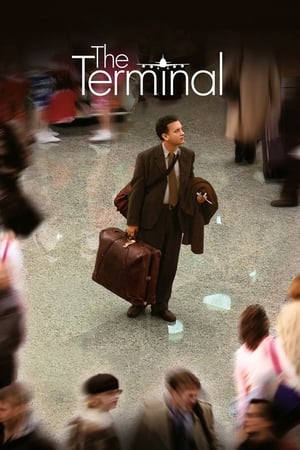The Terminal: A Heartwarming and Life-Affirming Film by Spielberg
Spielberg’s airport-based comedy, The Terminal, may not be considered his greatest work, but it is undeniably a delightful and heartwarming film. Released in 2004, it diverges from Spielberg’s historical dramas of the 90s and explores a lighter subject matter. Inspired by the real-life story of Mehran Karimi Nasseri, who spent 18 years living at an airport, The Terminal tells the tale of Viktor Navorski, portrayed by Tom Hanks, an Eastern European tourist stranded in JFK airport due to a passport issue.
A Departure from Spielberg’s Previous Works
After his critically acclaimed films like Schindler’s List and Saving Private Ryan, Spielberg decided to focus on more lighthearted themes. Prior to The Terminal, he directed Minority Report and Catch Me If You Can, showcasing his versatility as a filmmaker. The Terminal, although simplistic in nature, captivates audiences with its messages of acceptance and human connection.
As a subject matter expert, Spielberg expertly delivers a film that knows exactly what it wants to be. The screenplay, written by Andrew Niccol and Sacha Gervasi, doesn’t strive for grandeur or pretension. Instead, it embraces its simplicity and presents a fun and completely life-affirming experience.
A Successful Blend of Humor and Seriousness
One measure of The Terminal’s success lies in its box office returns, grossing $220 million worldwide. The film’s premise, built upon a true story, tackles serious themes with a touch of humor. Tom Hanks’ portrayal of Viktor Navorski brings numerous comedic moments, from his amusing interactions with a security camera to the dry humor of Kumar Pallana’s character, Gupta.
Although the film may oversimplify the struggles faced by refugees like Nasseri, it effectively highlights the absurdities of bureaucracy and immigration laws. While not exploring into detailed analysis, the film exposes the unnecessary and unreasonable aspects of these systems.
Stanley Tucci as the Archetypal Villain
Stanley Tucci’s character, Frank Dixon, serves as the perfect representation of administrative stupidity. As the Acting Field Commissioner of the airport, Dixon perceives Navorski as nothing more than an obstacle to his career progression. The growth of Dixon’s bigoted hatred for Navorski parallels the latter’s burgeoning friendships with airport staff and fellow flyers. The contrast between good and bad culminates in a satisfying moment when Navorski helps someone else navigate the bureaucracy, triumphing over Dixon’s adversarial stance.
The Triumph of Human Decency and Kindness
The Terminal’s ultimate success and joy stem from its celebration of human decency prevailing in the face of adversity. Despite moments when Navorski’s situation seems insurmountable or Dixon appears poised for victory, Navorski’s kind-heartedness consistently propels him forward. The film also intertwines romantic subplots, including a blossoming relationship between Enrique Cruz, played by Diego Luna, and Dolores Torres, portrayed by Zoe Saldana. Additionally, Navorski forms a significant bond with Amelia Warren, played by Catherine Zeta-Jones, a frequent flyer at JFK.
Spielberg’s frequent collaborators contribute to the film’s overall enthusiasm. John Williams’ original score, with its twinkling jazz-infused melodies, adds to the film’s charm. The swift editing by Michael Kahn and Janusz KamiÅ„ski’s creative cinematography further enhance the setting and dramatic plot points. The collective effort of these talented individuals ensures that The Terminal maintains audience interest throughout.
Spielberg openly acknowledges that The Terminal is primarily intended to please audiences, eliciting both laughter and tears. Not every film needs to be a profound masterpiece, and The Terminal embraces its role as a heartwarming and uplifting piece of cinema.
A Captivating Journey of Kindness and Humanity
As the story unfolds, viewers are gradually drawn into The Terminal’s gorgeous tone and playful nature. The film’s straightforwardness, evident in its plot and character dynamics, surprises audiences with a late subversion in the main romantic plotline. Unexpected moments, such as a standoff between security and Navorski, further exemplify the film’s ability to evoke heartfelt emotions. When Dixon, who begrudgingly begins to appreciate Navorski’s character, orders his guard to arrest him, the guard instead offers Navorski his coat, recognizing his vulnerability in the cold. Such instances solidify The Terminal’s status as an unpretentious and feel-good masterpiece by one of the industry’s most accomplished directors.
The Terminal, released on June 18, 2004, continues to captivate audiences with its heartwarming story and enduring themes of acceptance and human connection.
Conclusion
The Terminal is a testament to Spielberg’s ability to tell captivating stories that resonate with audiences. Through its humor, simplicity, and celebration of human kindness, the film provides a refreshing departure from Spielberg’s preceding historical dramas. While it may not rank at the top of his directorial oeuvre, The Terminal succeeds in leaving a lasting impression on viewers, reminding them of the power of acceptance and the triumph of human decency in the face of adversity.
Frequently Asked Questions
1. Is The Terminal based on a true story?
Yes, The Terminal is partially inspired by the real-life story of Mehran Karimi Nasseri, who lived in the Charles de Gaulle Airport for 18 years due to certain circumstances.
2. Who stars in The Terminal?
The Terminal features Tom Hanks in the lead role of Viktor Navorski, along with Catherine Zeta-Jones, Stanley Tucci, Diego Luna, and Zoe Saldana in supporting roles.
3. What is the significance of The Terminal’s setting at JFK airport?
JFK airport serves as the backdrop for the film, symbolizing a place of transit and connections. It reflects the notion that even in the midst of chaos and bureaucracy, human connections and acts of kindness can flourish.
4. What is the overall message conveyed by The Terminal?
The Terminal delivers a heartwarming message of acceptance, resilience, and the power of kindness in overcoming obstacles. It encourages viewers to embrace human connections and find joy in the simplest of moments.
5. Why is The Terminal considered a feel-good film?
The Terminal’s feel-good nature is attributed to its ability to evoke emotions through its engaging characters, humorous moments, and uplifting themes. The triumph of human decency, along with a touch of romance, creates an overall sense of warmth and positivity.


